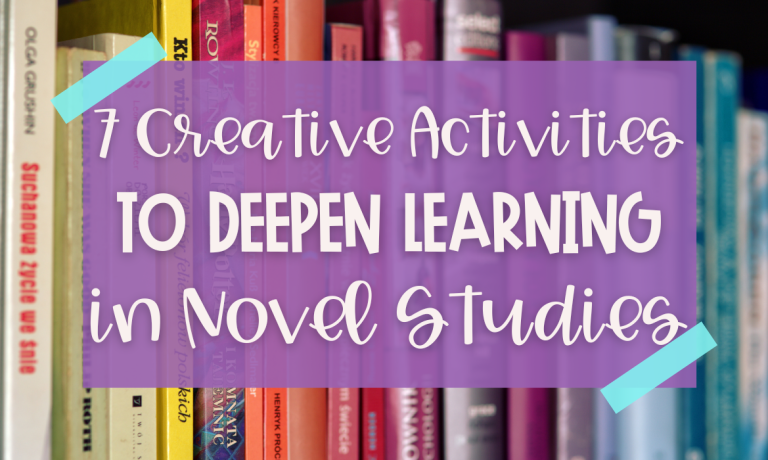In this blog post, we will explore a range of exciting and imaginative activities that can be used to enrich novel studies for third grade students. Novel studies play a crucial role in 3rd-grade education, fostering a love for reading and enhancing critical thinking skills. However, to truly engage young learners, it is essential to incorporate creative activities that deepen their understanding and make the learning experience enjoyable.
Understanding the Novel
Before diving into the creative activities, choosing age-appropriate and captivating novels that resonate with the students is vital to creating meaningful novel studies for third grade students. Pre-reading activities like exploring the book cover, discussing the title, and making predictions can build anticipation and curiosity.
Character Exploration
Characters are the heart of any story, and in this section, we’ll explore ways to bring them to life. Encourage students to create character profiles with physical traits, personality traits, and motivations. Drawing illustrations of characters can further enhance their understanding and imagination. For a more interactive experience, organize role-playing sessions or drama activities where students act out scenes from the novel. Additionally, writing character diaries or letters from the character’s perspective can deepen their emotional connection with the story.
Setting and World Building
The setting of a novel plays a significant role in shaping the story’s atmosphere. Engage students by having them create imaginative maps of the novel’s locations or specific settings. For a hands-on approach, encourage the crafting of 3D models representing key places. To develop descriptive skills, challenge students to write poetry or narratives that vividly describe the world within the novel.
Plot Analysis and Visualization
Understanding the plot is crucial for comprehending the overall story. Visualizing the sequence of events can aid students in grasping the story’s flow. Storyboarding important events and plot points can help them visually organize the story. An enjoyable and artistic activity is creating comic strips or graphic novel adaptations of scenes from the book. Additionally, challenge students to rewrite alternative endings or craft sequels, promoting creative thinking and storytelling.
Theme and Moral Reflection
Themes and moral lessons are significant takeaways from any novel. Facilitate class discussions to explore and analyze the themes within the story. Encourage students to relate these themes to real-life experiences, fostering empathy and understanding. A wonderful way to reinforce these concepts is by having students create visual representations, such as posters, that showcase the moral lessons learned from the novel.
Vocabulary Enrichment
Novel studies for third grade students are an excellent opportunity to expand vocabulary. Integrate fun word games and puzzles related to the novel’s content to make learning new words enjoyable. Have students create vocabulary journals where they list new words, illustrate their meanings, and use them in sentences. To make vocabulary learning a daily habit, organize a class “Word of the Day” challenge.
Book Reviews and Recommendations
After completing the novel, encourage students to write individual book reviews. This activity allows them to express their thoughts, opinions, and reflections on the story. As a collaborative project, create a class book review blog where students can contribute their reviews. To spread their love for reading, encourage the students to recommend the novel to other classes or grades.
Cross-curricular Connections
To make novel studies for third grade students even more enriching, integrate them with other subjects. For example, explore science or history topics related to the novel’s themes. Encourage students to create art projects inspired by the story, allowing them to express their creativity. Additionally, incorporate math activities that relate to the book’s data and statistics, if applicable, making connections between literature and other subjects.
Celebrating the Culmination of Novel Studies for Third Grade
Celebrate the students’ achievements at the end of the novel study with a book-themed party or celebration. Involve parents and other classes to showcase the creative work of the students. Take time to reflect on the learning experiences and personal growth throughout the novel study journey.
By incorporating creative activities in novel studies for third grade, educators can make the learning process more enjoyable and meaningful for young learners. Through character exploration, world building, plot visualization, and vocabulary enrichment, students will deepen their understanding of the novel and develop essential skills for lifelong learning. Embrace the power of imagination and creativity to nurture a lifelong love for reading and literature in our young minds. Happy reading and exploring!
